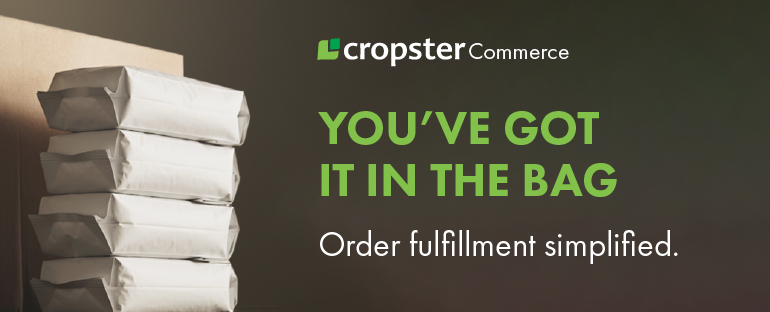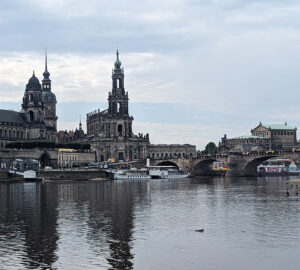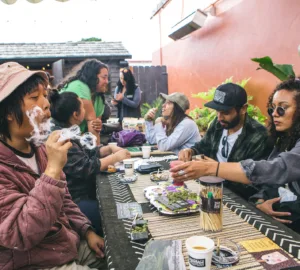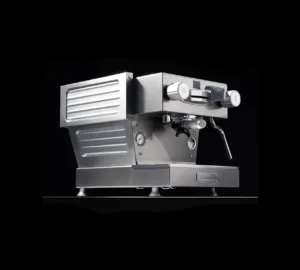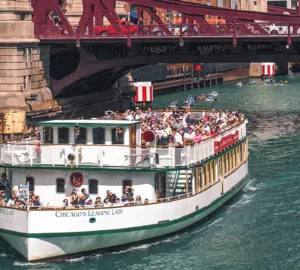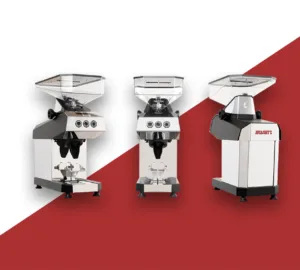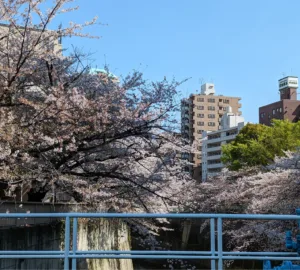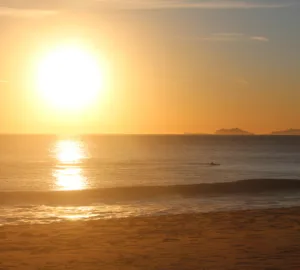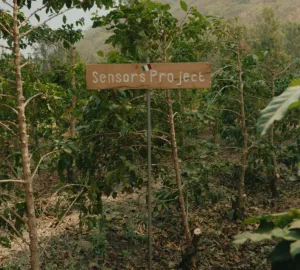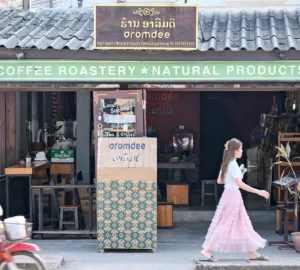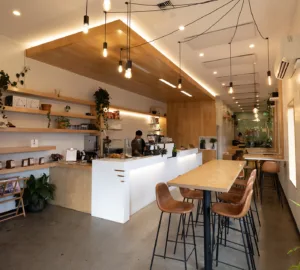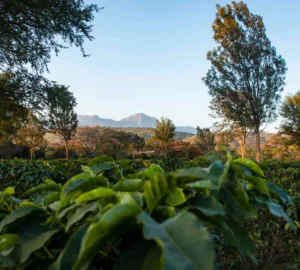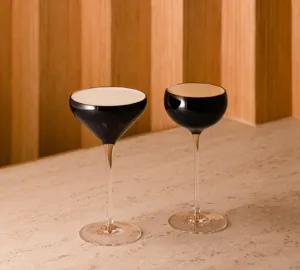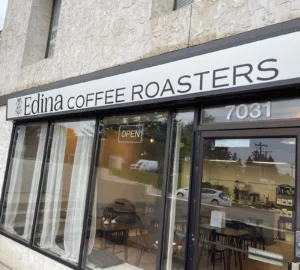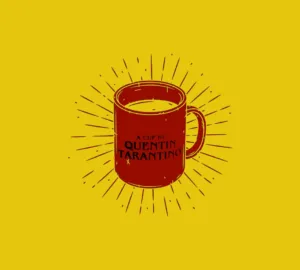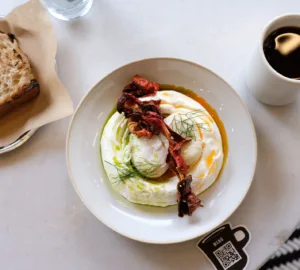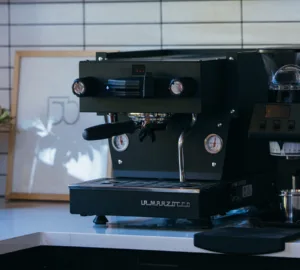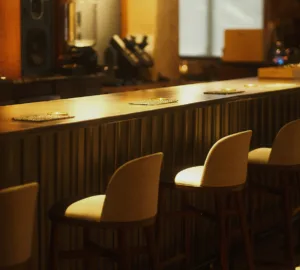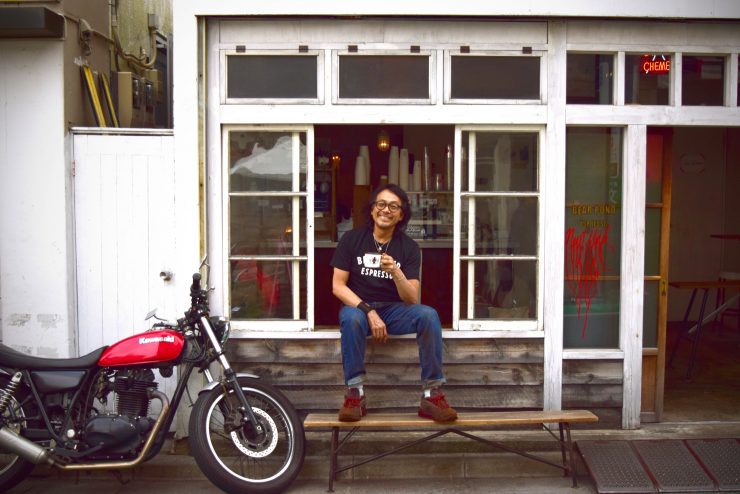
It’s a little after 2 p.m. when I get to Bear Pond Espresso, in Shimokitazawa, Tokyo. Inside, Katsuyuki “Katsu” Tanaka is standing where he always stands—behind his La Marzocco FB80 espresso machine. It’s here that he makes the Angel Stain: Bear Pond’s famed signature espresso, served only until 1:00 p.m., with a maximum of 10 per day.
The quiet, stoic coffee shop has developed a cult following since opening in 2009—because of both the unique, obsessed approach of its craftsman and the “life by my own rules” mantra that seeps from every pore of the shop, and drips into every espresso.
So it felt a little odd, when I visited, to talk about coffee for camping. But that’s what we did.
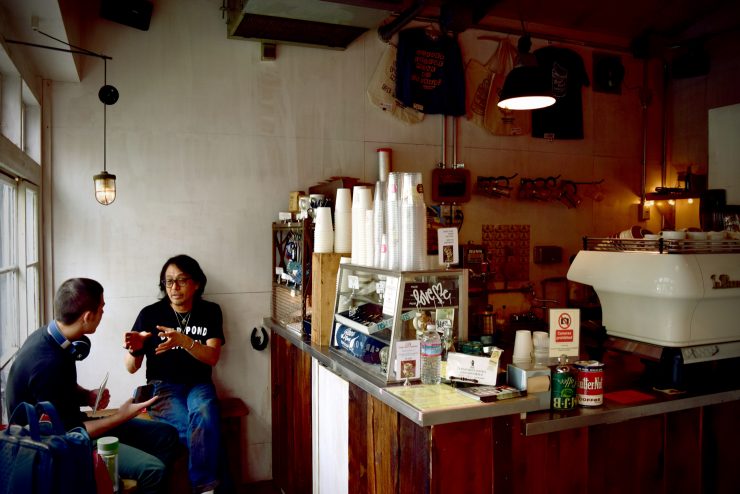
Things slow down at the counter, and Tanaka sits and discusses his new product: the Coffeedust Poke. He wipes his coffee-stained hands on his coffee-stained jeans and sits against the wall. I look over to a thin, wallet-size cloth filter in the display case and ask about it.
Tanaka explains that while a coffee shop provides perfect conditions for brewing and serving coffee—equipment, tools, flat surfaces, temperature, and water-flow control—nature makes no such promises. He says he designed the Coffeedust Poke with this in mind—it’s a method anyone can enjoy anywhere, even in unfavorable conditions.
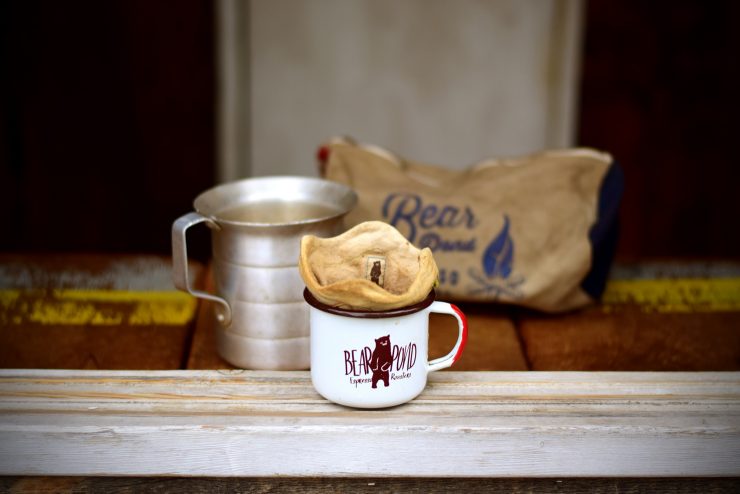
“When you think about [brew] methods for bad conditions—out in nature—and which work best, and which maintain consistency, it’s steeping. You don’t have to concentrate on the pour; you just submerge the grounds. You don’t even have to worry about the speed of the pour, or working on a flat surface. The easiest way to brew out in nature is just to put the grounds in, add water, wait three and a half minutes, and pull the filter out.”
And that’s exactly how the Poke works, he says, before heading back to the counter to make lattes for two girls who’ve stopped in. (It’s one thing to hear that only Tanaka ever touches the espresso machine at Bear Pond, but it’s another thing to see that policy in action.) When he comes back, I ask what inspired the Poke. He replies by saying coffee is about equations—and the Poke is like a new one.
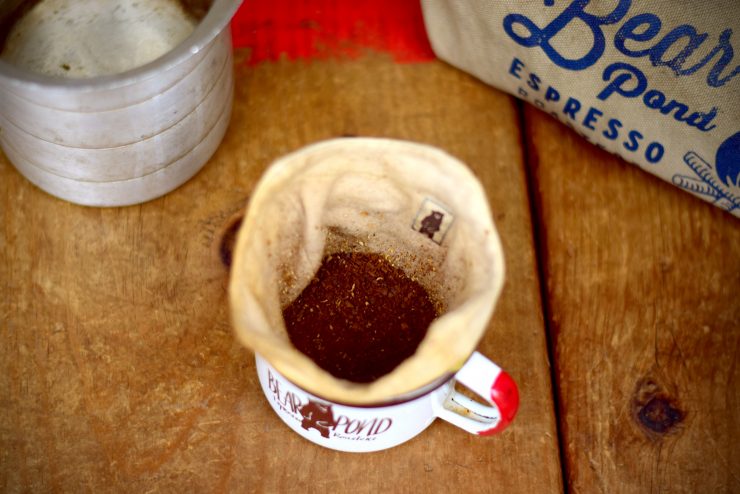
“There’s an endless series of numbers for coffee,” Tanaka says. “Each brewing method is like its own equation. There’s the variety of coffee beans and the variety of roast methods, but the equation always ends at the brew method.”
He continues, “While working as a Chemex global ambassador, I thought, ‘The Chemex is like its own equation.’ It’s like a manual drip equation. There’s addition, subtraction, multiplication, and division. But what if there was something else? I wondered what would happen if I made my own equation.”
Tanaka offers to brew a cup so I can see how the Poke works. He takes a cloth “survival pack” from behind the counter and shows me its contents: a Porlex grinder, a small scale, a timer, a camping burner, an enamel mug, and 200 grams of beans—he says you could just throw this in the back of your car. Coffee whenever you feel like it.
He gets a pitcher of hot water and a Poke filter filled with coffee, a coarse grind from Guatemala, he says. As Tanaka brews, he explains what went into the making of the Poke.
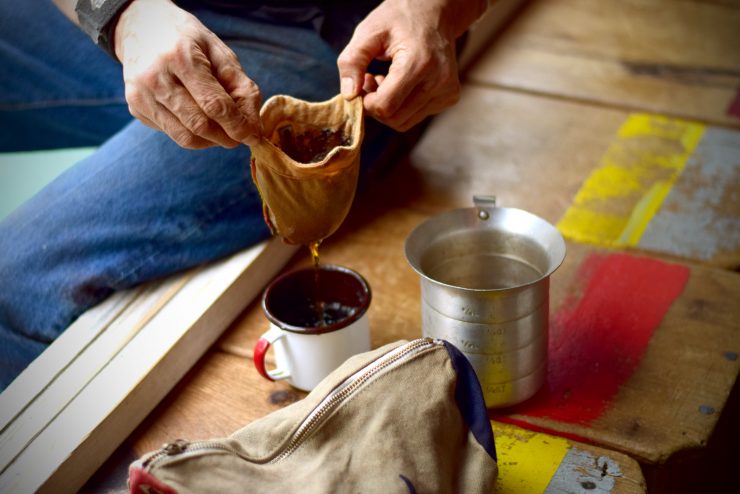
It took two years to develop, he says. They had to find the right materials, and then they had to work on getting the size of the filter right, as that can affect taste. The handles were specially designed to prevent water leaking from the cup. Each prototype was tested—it needed to be sturdy, easy to use, and easy to clean.
And, watching Tanaka use it, it really does look like the easiest thing in the world. He pours in the water and waits. He tells me about his motorbike, and how he doesn’t take trains, ever. He talks about traveling to America and getting back to nature. Barbecues, hammocks, trail walking, and driving with his dog. He starts talking about surfing, then looks down at the timer.
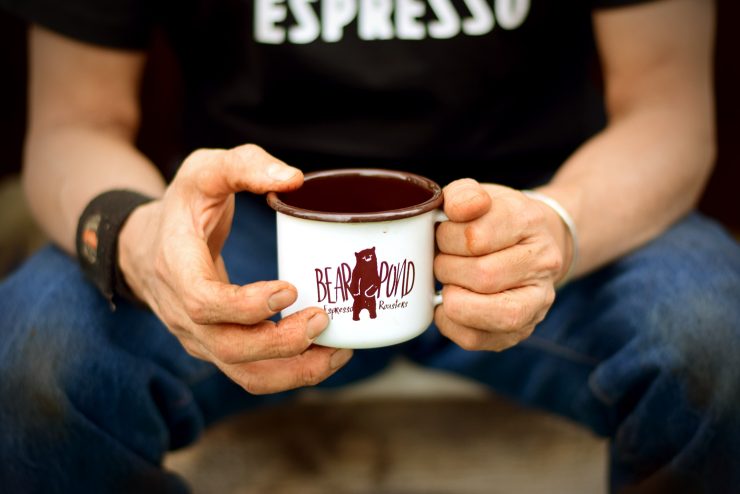
Three minutes thirty. In the outdoors, he says, this is it: you pour, you wait, and you talk as you go. At the end of it, coffee with body. Afterward, you shake out the grounds and rinse the filter, he says, or just put it in a Ziploc bag to wash later if you don’t have the water or the time.
Tanaka says he doesn’t plan to mass-market the Coffeedust Poke. He’s not sending them overseas, or anywhere, for that matter. He says they’re handmade, and that takes time—he prefers that people simply come visit when they want one.
Which is unfortunate; it really does seem like a great piece of outdoor equipment.
But at the same time, it also seems to fall neatly in line with the Bear Pond way: there’s thought and detail in everything Tanaka does, but if you want to experience it, you have to go out and find him.
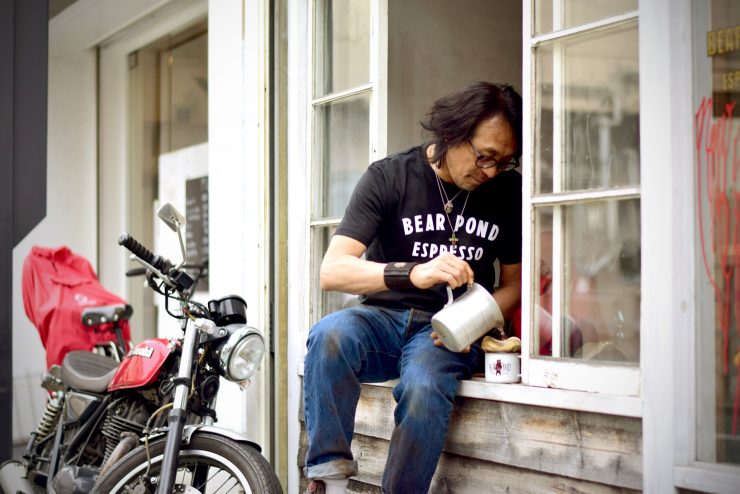
Hengtee Lim (@Hent03) is a Sprudge.com staff writer based in Tokyo. Read more Hengtee Lim on Sprudge.
Photos courtesy of Rie Miyoshi.














